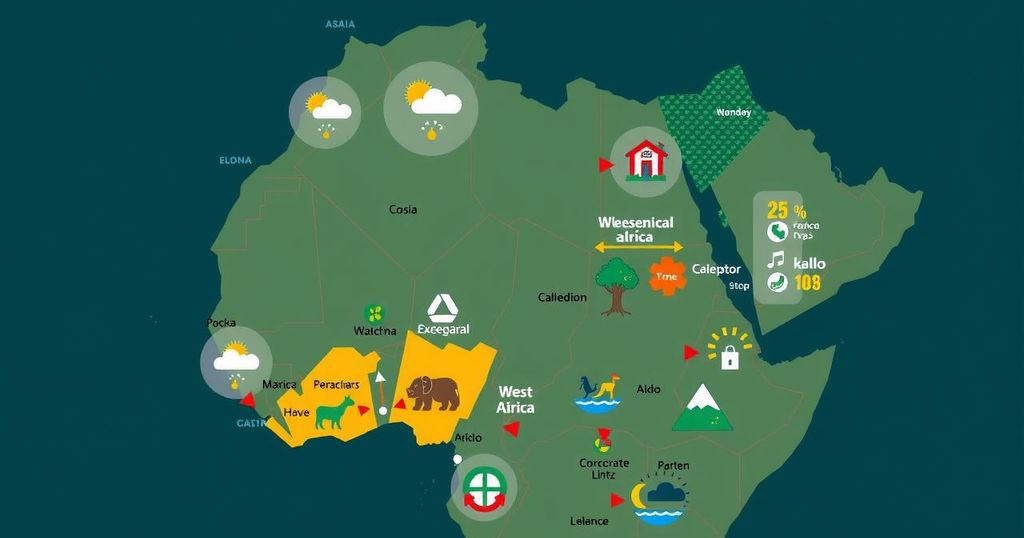Enhancing Pandemic Preparedness in West Africa Amid Climate Change Challenges
The World Health Organization highlights climate change as a major health threat exacerbating public health challenges in Africa. Rising temperatures and altered rainfall patterns significantly affect vector-borne diseases, including Lassa fever, necessitating enhanced pandemic preparedness strategies. The Future of Health Conference emphasized multi-stakeholder collaboration and localized data to effectively address these health challenges in a changing climate.
The World Health Organization has recognized climate change as a critical health threat, especially in Africa, where its effects exacerbate public health challenges. Rising temperatures and erratic weather patterns are causing shifts in vector-borne diseases, such as Lassa fever, expanding their reach into new regions. Experts urge the integration of health considerations within national climate policies and collaborative efforts across countries and sectors to enhance pandemic preparedness. The recently held Future of Health Conference highlighted the urgent need for action, advocating for localized climate data and community engagement in public health strategies. Key discussions emphasized the importance of the “100 Days Mission,” aimed at swift vaccine development in response to outbreaks. Effective pandemic preparedness is reliant on strengthening cross-sectoral partnerships and utilizing local data to confront the evolving health landscape shaped by climate change.
Climate change poses significant health risks globally, particularly in West Africa, a region vulnerable to various infectious diseases. The interplay between changing climatic conditions and health outcomes necessitates a comprehensive approach to managing and mitigating these risks. The increasing prevalence of diseases like Lassa fever underscores the need for countries in this region to adopt strategies that incorporate climate resilience into their public health policies. Collaborative frameworks among various stakeholders are essential to build robust health systems that can respond to both endemic and emerging health threats.
In conclusion, addressing the implications of climate change on public health, particularly in West Africa, is paramount. Enhanced localized data collection, cross-sectoral collaboration, and community involvement are critical components required to fortify health systems against future outbreaks. Moreover, achieving the ambitious goal of the 100 Days Mission hinges upon cooperative efforts among countries to tackle the challenges posed by climate change effectively.
Original Source: nigeriahealthwatch.medium.com




Post Comment